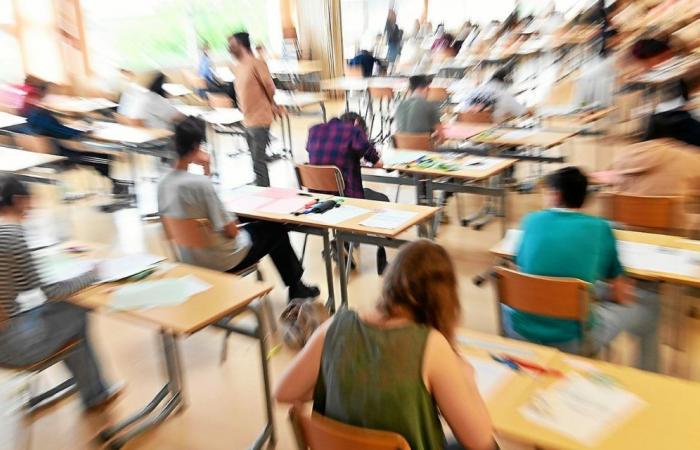“Stop the 8 a.m. to 6 p.m. high school hours! » The question of school schedules is coming to the fore at the start of the school year. If she succeeded in finding her way between the budget and immigration, we do not owe it to a political figure. But to a 28-year-old tiktoker, SenseiDmots. And to his petition, which has gone viral, demanding that classes take place only in the morning in middle and high school, a bit like the German or Canadian model. Faced with this mobilization, the new Minister of Education, Anne Genetet, invited the influencer to meet her to discuss her proposal. Before canceling the meeting, due to the young man’s sulphurous profile (he is accused of making homophobic and sexist remarks in particular).
If the episode may seem anecdotal, in these troubled political times, it raises a question: what capacity do young people have today to impose their subjects in the debate? “With digital technology, Generation Z can give their opinion on everything, to everyone. She is used to making herself heard,” noted anthropologist Élisabeth Soulié recently, in the columns of Le Télégramme.
It is also a generation which, contrary to popular belief, is far from disinterested in public affairs: “The information practices of adolescents are rich and eminently serious,” assures Anne Cordier, professor of information sciences at the University of Lorraine. Even if the media are different from those of their elders, “they inform themselves on a daily basis, whether on current events or on questions related to their interests, their hobbies or even school programs and activities” , she says, in an article published by The Conversation.
“A dispersed and intra-generational word”
From defending the environment to organizing work, including school, Generation Z has things to say. But does it really succeed in shaking up old models?
“Many young people express themselves via social networks, but it is a dispersed, very heterogeneous, and intra-generational voice,” observes sociologist Olivier Galland, emeritus research director at the CNRS. “It doesn’t seem to me that it has much resonance in public debate, except when it comes to blacklisting comments that appear scandalous or shocking,” he believes.
He also points out a bias regarding the subjects that can emerge: “Those who speak most on behalf of young people are the student unions but, on the one hand, their representativeness (of all students) is very low, if we judge by the participation in university elections, on the other hand, they do not represent other young people, those who have not had higher education. The latter are the “invisibles”,” he notes.
.
This echoes the results of the last legislative elections. According to a survey carried out in the wake of the election by Harris Interactive, 41% of 18-24 year olds slipped a New Popular Front ballot into the ballot box in the first round, 23% voted for National Rally (a clear increase compared to the 14, 1% in 2022), while only 13% chose the presidential camp. That is to say a “very marked bipolarization between a rather social ecological vote and a national conservative vote”, remarks sociologist Laurent Lardeux to L’Opinion. Stressing that this phenomenon “refers to young people who are different from the point of view of their living conditions, their territory, their social origin, their level of diploma or their profession”.
“They do politics differently”
“We must always keep in mind the diversity of young people, including in terms of values and politics,” adds political scientist Vincent Tiberj, from the Observatory of Cultural Policies. However, highlighting a common point among young people: their lack of interest in political politics. “They do politics differently. This parallel world of commitment involves the associative environment, localism, or even third places,” he explains. Enough to fundamentally change our political system? “I’m afraid it will take time,” he replies.
Every year, 100,000 young people leave the school system without qualifications. In France, one in five young people lives below the poverty line.






